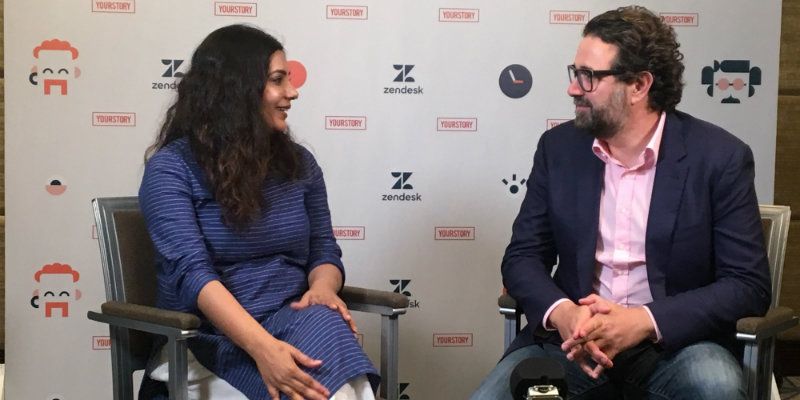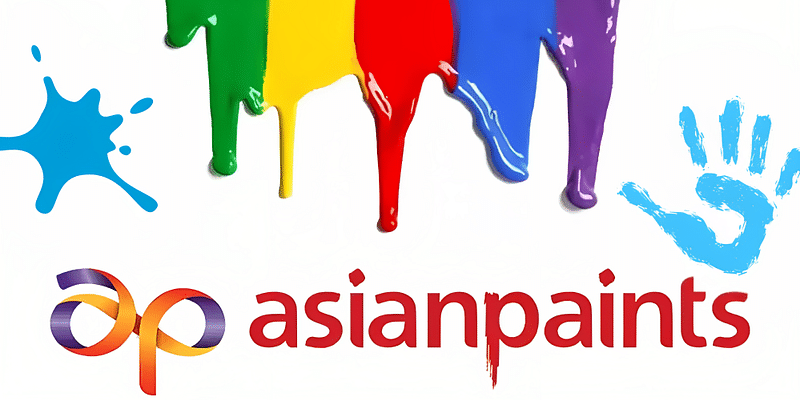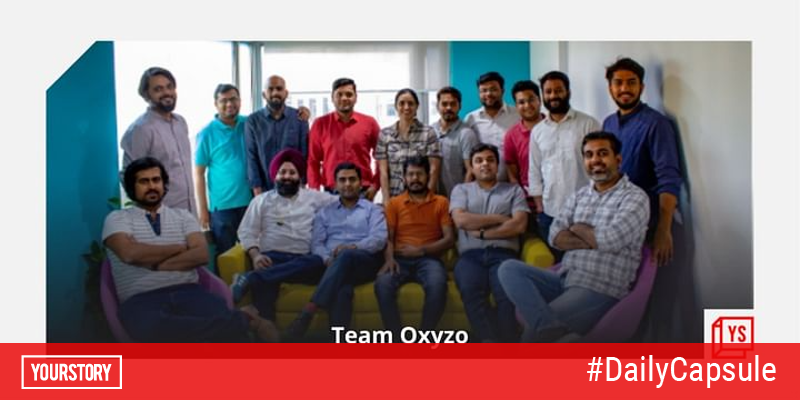Intimacy in Customer Experience is big for Zendesk's Mikkel Svane
Earlier this week, Zendesk’s share price climbed to an all-time high following the announcement of its extraordinary first-quarter results, taking its market cap to $5.63 billion. The company had gone public in 2014. Now 10 years old, Zendesk is turning out to be a formidable competitor to some of the biggest players in the customer service space, with 125,000 paid customers, 2,000 employees in India and 70 percent gross margins.
It’s the type of growth story that every entrepreneur dreams of, but not everyone is able to achieve. For Zendesk, India is a high-growth market despite the competition it faces. If Founder and CEO Mikkel Svane’s obsession with revolutionising the customer service experience is anything to go by, the evolution of this market will be interesting to watch. I caught up with him this week in Mumbai, and we talked about what drives him, and the company's plans for India. Here are edited excerpts.

Shradha Sharma: I’ve heard that you’re obsessed with creating better customer experiences and you have said something interesting… "customer experience is to create an intimacy with the customer, so it feels like a seamless conversation.” Tell me what this means – “intimacy” with customers?
Mikkel Svane: I think one of the most alienating points in a customer service experience is that you contact a company that you may know very well, maybe your bank or phone provider, where you’ve had your account for 20 years. And when you call them or email them, or whatever way you chose to engage with them, you have to identify yourself. In the US, it's always, “What’s your birthday? What’s the last 4 (digits) of your social (security number), What’s your account number…?”
And they have three questions to verify your identity. If you think... there's no other relationship in the world where we would accept that. It's one of the most alienating points in a customer relationship and there's no trust in the channel. So that's one of the things that we are trying to change - building trust in the channel so it creates much more intimacy. It's like when they know exactly who you are when they pick up the phone, or when they answer an email. And it's such an experience to overcome that distrust and create that connection of trust and familiarity.
SS: One thing I am curious about – what brings you to India today? What has gotten you interested in India?
MS: It's been a little over a year, closer to a year-and-a-half, that we opened our office in India. We’ve, of course, had customers here much longer than that. But we set up shop here 18 months ago and it's about time that I came by. (laughs) We already have a few thousand customers and some exciting brand names that we work with. We have a great team growing rapidly, doubling every six months, so it's a privilege for me to finally come to town, meet a lot of our customers. We have an event here, and it's just great to be here and see everybody.
SS: Amazing. I have huge respect and admiration for you as you founded Zendesk in 2007 and the company has scaled to such heights in the past ten years. You've been able to scale it in a space which is, all said and done, competitive. You have large competition in the Oracles, Microsofts of the world. And you have young companies coming up all the time, and in India, we have Freshworks etc. How do you see competition and how have you been able to maintain this consistent edge in the market?
MS: When we launched ten years ago, nobody thought that this was an industry that could be reinvented. Nobody thought there was room for anybody with a new product, new innovation, new technology. A lot of people underestimated how much change the Internet, social media, all these new channels, globalisation etc will bring to customer relationships. So that has accelerated our growth because we became the product of choice for a whole new generation of companies and consumers.
We invented and re-thought how customer relationships can become the foundation for companies to grow. It’s also important for your lifetime revenue and your lifetime relationship with a business. And today that's important because we have subscription-based businesses and convenience-based businesses, which are constantly emerging.
It's about creating relationships where the customer is coming back to the business over and over again. So customer service has become such an integral part of the growth and the mentality of new-generation businesses. We were very fortunate to be a part of that, and that has really created a boost and acceleration for our business.
Now we are the leader in the space with a half a billion dollars in run rate, over 125,000 customers globally, and are growing 38 percent quarter-on-quarter. There are a lot of great companies in this space trying to do different things, and we're very inspired by that and have learned a lot from them. We think it's amazing that you see so much innovation, because ultimately at the end of the day it's great for customers.
SS: Do you track your churn rate very closely, and what I mean to ask you is do you have any exciting numbers to share with us in terms of retention?
MS: (Laughs) Yes, of course. We are a subscription-based business, so churn rate is incredibly important. One of our metrics is what we call the dollar-net expansion rate. That looks at how many customers we are losing and how much we are growing with the existing customer base. We are running somewhere between 115 to 120 percent in dollar-net expansion rate. And that is a testimony to how good we are at keeping our customers, and growing our customers. We are very proud of that.
SS: How do you achieve something at such a fast pace – this kind of success in expanding and then streamlining operations globally. And secondly, what are some of the challenges you see when you scale so fast?
MS: It's hard work. No doubt about it, and you can only succeed with that kind of growth if you have great customers that help you grow. We've built a great team, and as founder-CEO, I had to build a team that knows a lot more about that job than I do. And we've been very fortunate in attracting great talent, because, at the end of the day, it's all about people, whether it's our customers or our business.
SS: And you’re also a very good founder and CEO from what I have researched.
MS: To keep up with the company's growth and with our customers’ expectations, I have to get up every single morning and try to do a better job than I did the previous day. And it's a privilege to be able to have the opportunity to do so. I've worked very hard to live up to the expectations of our employees, our customers, our investors, our community, everybody.
SS: You are from Copenhagen, and I am assuming (Denmark) is still the happiest country in the world. You moved (the company to the US), so you are like an immigrant entrepreneur to Silicon Valley, which adds to the legends of success over there. Do you see any particular requirement to scale in the, if I may say so, the ruthless environment of Silicon Valley?
MS: It is. So, as you say, I come from Copenhagen in Denmark. Copenhagen is a very small city in a very small country. We haven't created a company with more than a 1,000 employees in 30 years in Denmark So it's a very small place.
SS: Do I see your name at the (Copenhagen) airport like the most successful new age entrepreneurship story?
MS: You can see our company brand at the San Francisco airport, but no, not in Copenhagen. So, it's a very small place and it's hard to build a fast-growing company in a place like that, recruiting people, raising money. All those things (are) almost impossible, whereas in San Francisco, Silicon Valley, there is a different tradition for company-building. And I think that's what we tapped into when we moved our company to San Francisco – the experience, the access to capital, the talent. And just this tradition of building disruptive companies, where everything is allowed, and that's a very inspiring thing. (It) helps you think bigger, helps motivate you, and also really helps you build successful businesses.
SS: I'm sure someone like you who has such strong business numbers and a listed company…you would have looked at India and mapped the market and seen this potential. In the Indian market, people say there’s not enough money that customers roll out when it comes to software and Internet (as yet). What has been your experience in the past year that you've been operating?
MS: I think in business software, there's a tendency, or at least there's a new generation of companies trying to democratise software. You see that all over the place, and you also have great examples of that in India. Democratising itself means that you can sell it (software) at different terms - it's less expensive, it’s easier, it requires fewer investments, fewer people, etc. And you can scale it much, much bigger and much, much faster. And I think that's a different kind of opportunity, where you don't necessarily have to go door to door to sell your thing, but you can really leverage the internet and scale your business like that. It's an amazing opportunity. Also, in a place like India, there is a lot of opportunity in the scaling of low-friction goods like software.
SS: Before we conclude, what's the big vision? What’s the big vision driving you?
MS: I think we live in a world today where customer expectations are going through the roof, and for businesses to live up to those expectations is hard. We provide them technology that can really keep them at the forefront. But I think there’s a bigger thing here about how businesses today can be disruptive in one (or) two years. And the only way you can stay ahead of the disruption is that you build out fantastic customer relationships. So that's what we're trying to do: help businesses bring that intimacy, if you will, into their customer relationships that can make (for) loyal customers and that could create ambassadors out of your customers.
And democratising that software so we can make it available for everybody, whether you are a small business in Mumbai or you are a big enterprise somewhere else. We are making that great technology available for everybody. We think it's not only good for business, but it is also fantastic for consumers and that is what drives us.








![[Startup Bharat] Y Combinator-backed BeWell Digital is enabling the digital transformation of radiologists](https://images.yourstory.com/cs/2/40d66ae0f37111eb854989d40ab39087/ImagesFrames31-1648033042143.png)


